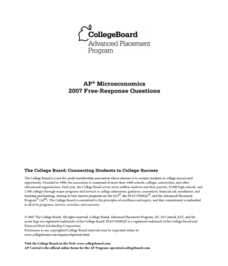PBS
Organizing the Farm Worker Movement
The food on young scholars' tables was likely harvested by hands that fought for fair wages and working conditions. By examining the life of Cesar Chavez and Dolores Huerta, learners connect their daily meals with the struggles of those...
PBS
What's In a Name?
What is in a name? Eager historians trace the geographical history of places in the United States with Spanish names. Using a worksheet activity, clues, and web research developed in conjunction with the PBS "Latinos in America" series,...
PBS
Stories of Arrival
While every family's immigration story is unique, patterns emerge when looking at individual narratives. Using clips from the PBS video series, "Latino Americans," learners look at commonalities among immigrant experiences. A chart helps...
PBS
Latinos at the Ballot Box
Latinx people have had a profound effect on voting patterns, going back to the 1950s. Using video clips from the PBS series "Latino Americans," scholars work to assemble a timeline of the interesting history. Then, pupils consider the...
University of Texas
Understanding Migration
Human migration—often the result of push and pull factors—sometimes has dramatic outcomes for both those leaving their homelands and the host countries. Using a variety of case studies, learners consider those issues. Then, by completing...
Beverly Hills High School
French Revolution
What led up to the French Revolution? Middle and high schoolers explore the factors that contributed to the storming of the Bastille on July 14th, 1789, as well as the events following that fateful day, with a presentation on the French...
Echoes & Reflections
Contemporary Antisemitism
Despite the recognized atrocities of the Holocaust, anti-semitism continues. The 11th and final installment of the Teaching the Holocaust series explores the long-term effects of the Holocaust on modern anti-semitism, asking pupils to...
Americans All
A Simulation: The Peopling of America
What was it like to pass through Ellis Island? Learners move through the immigration process of the early 1900s in a simulation activity. A comprehensive activity includes role-playing profiles and other manipulative items such as...
College Board
2007 AP® Microeconomics Free-Response Questions
A monopoly gives a company exclusive rights to a market. What is the impact of that decision on the economy? Problem sets from College Board explore this question, as well as variables in labor markets and government regulations on profit.
National Endowment for the Humanities
Revolution '67, Lesson 1: Protest: Why and How
To some people, protesting is as American as apple pie, but the factors that lead to protests can be as confusing to veteran activists as to today's youth. Revolution '67 explores the riots in Newark, New Jersey as a case study. Using...
Newspaper Association of America
Celebrating Women’s History Month
Examine the lives of four women—Blanche Stuart Scott, Madeleine L'Engle, Margaret Evans Price, and Sybil Ludington—in a 23-page activity packet. Each profile comes with a set of vocabulary and reading comprehension questions. Further...
Penguin Books
An Educator’s Guide to Ruta Sepetys
Historical fiction novels give readers a chance to step into someone else's shoes. An educator's guide from Penguin Common Core Lesson Plans provides resources to accompany three historical fiction novels written by Ruta Sepetys: Between...
Penguin Books
An Educators' Guide to Between Shades of Gray by Ruta Sepetys
Books can help teens understand complex global issues. A helpful educator's guide introduces readers to what it's like to be a refugee. Lesson components for the novel Shades of Gray include an anticipation guide and writing and research...
Judicial Learning Center
Understanding the Types of Cases
Most young scholars are aware of the criminal courts system, but the United States Constitution allows for a much broader role. What other roles do courts play in settling other questions? A case study and WebQuest-style activities...
Benjamin Franklin Tercentenary
Choosing a Trade in Colonial America
How did workers pick a trade in colonial America? Using a WebQuest approach, scholars explore life in the colonial era by looking at professions available to men like Benjamin Franklin. Individuals then apply their knowledge to create...
Council for Economic Education
Mercantilists and the Midas Touch
What is the connection between greed and mercantilism? Historians consider this question by analyzing a fairy-tale like story about King Midas from the nineteenth century. The background information and excerpt help pupils understand the...
Council for Economic Education
The Columbian Exchange
What did you have for dinner last night? Many scholars ask that question without considering the history behind the foods they eat. Using a simulation, scholars investigate how the foods they eat are the product of the Columbian...
Council for Economic Education
What's the Big Deal about Spices?
Today's gourmands don't consider spices to be the equivalent of silver and gold. During the middle ages, however, these commodities were precious. People back then used spices in religious ceremonies, to cure rotten food, and as a show...
Council for Economic Education
The Economic System of Medieval Europe
How are economics and politics intertwined? Societies in the Medieval period used feudalism for both economic and military reasons. The arrangement provided safety and met other needs. Using the included simulation, individuals...
Council for Economic Education
Economic Systems of the Incas and Aztecs
The Inca and Aztecs created vast economic empires in South America, but how did economics play a role? A simulation activity and reading help scholars evaluate the kinds of markets these great civilizations created. They then consider...
Council for Economic Education
Fall of Rome
What led to the fall of Rome? Scholars have debated the question since the end of the great empire. Young historians consider the same question through an economic lens using an engaging lesson that involves a hands-on evaluation of the...
Council for Economic Education
The Silk Road
The Silk Road connected the European, Middle Eastern, and Asian worlds. It also helped create the modern trade world. An analysis activity makes the importance of this Chinese innovation clear by asking participants to evaluate trades...
Council for Economic Education
The Neolithic Agricultural Revolution
What effect could one person's invention have on the human race? In the case of the Neolithic Agricultural Revolution, small improvements in farming methods led to increased food production. The human population began to boom, leading us...
Council for Economic Education
How Neolithic Farmers Increased Their Standard of Living
How do people improve their economic situations? While many learners may not consider questions about how many crops to grow in ancient times were economic decisions, a hands-on activity encourages individuals to make these connections....

























